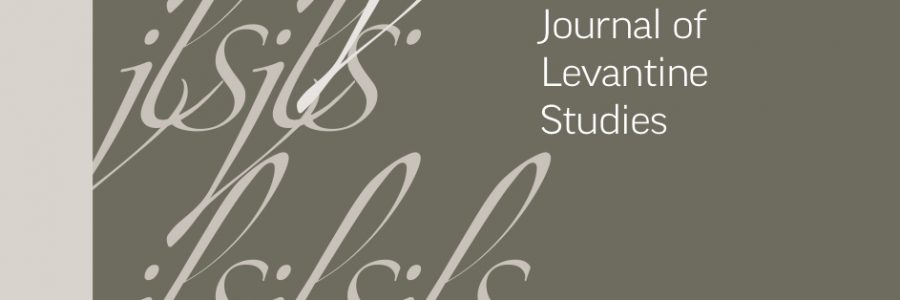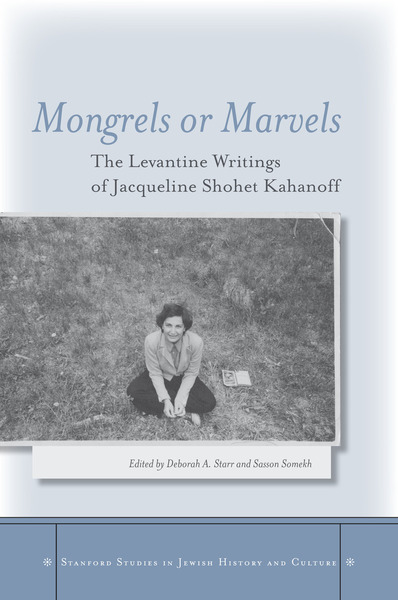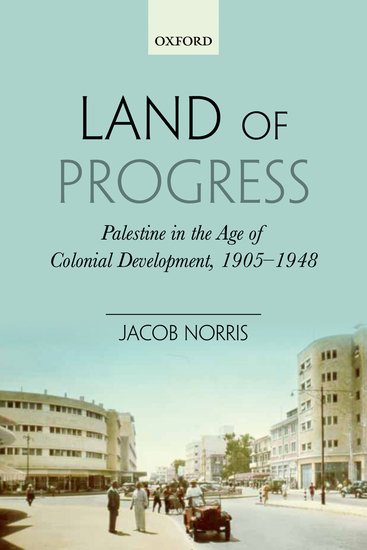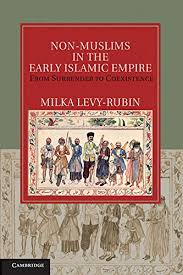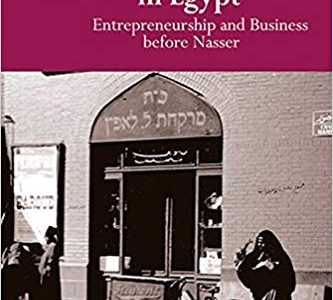-
Add to cartQuick view
Anthony O’Mahony and John Flannery, eds. The Catholic Church in the Contemporary Middle East: Studies for the Synod for the Middle East. London: Melisende, 2010, 352 pp.
Anthony O’Mahony and John Flannery, eds., The Catholic Church in the Contemporary Middle East: Studies for the Synod for the Middle East. London: Melisende, 2010, 352 pp.
$5.00Free!Add to cartQuick view -
Add to cartQuick view
Between Cultural and National Nahda: Jewish Intellectuals in Baghdad and the Nation-Building Process in Iraq
Free!This article focuses on the role of Jewish intellectuals in defining a national and cultural identity for their coreligionists in Iraq during the establishment of the state by the British in the years 1921 until 1932. Based primarily on their contributions in the press, their poetry and memoirs, this article discusses the responsibility that Iraqi Jewish thinkers and writers took on themselves in order to participate in the national and literary revival, the Nahda, from which they hoped the entire Jewish community would benefit. Their responses to anti-imperialist debates in Iraqi intellectual circles and stance on sectarianism and secularism is examined through analysis of the themes and terminologies used by three Baghdadi Jewish intellectuals: Nissim Susa (1900-1982) Anwar Sha’ul (1904-1984), and Mir Basri (1911-2006). Is there a common trend among these three regarding their perception of the nation? How is writing employed to foster national consciousness?
Add to cartQuick view -
 Add to cartQuick view
Add to cartQuick viewBetween Politics and Politics of Identity: The Case of the Arab Jews
Free!The article introduces the term “political Arab Jew,” its nature and meaning. It will show that proponents of the Arab Jew seek to separate the ethnic from the national, the Jew from the Zionist, and realign ethnic identities: Arabs, who include Jews and Muslims, vs. Ashkenazim/Zionists. They do so by creating an “imagined community,” by rejecting an ascriptive identity based on an ethnic/national juxtaposition, and by suggesting their own kind of identity, a self-ascriptive identity that separates the ethnos from the nation. They have failed in their mission, as the majority of Jews of Middle Eastern and North African origin reject the Arab Jew definer as representing their own identity. Even the more militant Mizrahim, who are fighting to change Mizrahi-Ashkenazi relations, limit their activities to the cultural field; when their goal is to redefine the place of the Mizrahim in Israel, they do so from within, not outside of, Jewish/Zionist society.
Add to cartQuick view -
Add to cartQuick view
Cultural Trends of Urbanization in Salonica: Ottoman Poetic Genres of the Ritual Songs of the Ma’aminim
Free!The “Ma’aminim,” known derogatorily as “Dönme,” followed in the footsteps of their messiah—Sabbatai Tsevi—and broke out of the boundaries of Jewish society by converting to Islam during the 1680s. They established their center in Ottoman Salonika. While outwardly being fully Muslim, the Ma’aminim secretly developed and observed a hybrid messianic religion consisting of ritual practices and beliefs that were a combination of their unique Sabbatian faith, their Sephardi Jewish origins, and elements appropriated from their non-Jewish Ottoman surroundings. The aim of this paper is to illuminate the songs of the Ma’aminim—perhaps the most crucial inner-communal source available to us—in light of the context in which they were created. The main tool for contextualizing will be the examination of two popular, previously unnoticed Ottoman poetic genres to which many of the Ma’aminim songs belong: şarkıand türkü. The paper claims that the extensive use of these genres reflects common cultural preferences among the Ma’aminim and wider cultural trends of the time in which the songs were created, trends that were related to changes in urban Ottoman society. This focus on these genres will demonstrate the importance of considering the Sabbatian mystical sources as a historical document and will offer a cross-cultural perspective for pursuing further research on these unique texts.
Add to cartQuick view -
Add to cartQuick view
Deborah A. Starr and Sasson Somekh, eds., Mongrels or Marvels: The Levantine Writings of Jacqueline Shohet Kahanoff. Stanford: Stanford University Press, 2011. 304 pp.
Deborah A. Starr and Sasson Somekh, eds., Mongrels or Marvels: The Levantine Writings of Jacqueline Shohet Kahanoff. Stanford: Stanford University Press, 2011. 304 pp.
$5.00Free!Add to cartQuick view -
Add to cartQuick view
Deterritorialization of Belonging: Between Home and Unhomely in Miral al-Tahawy’s Brooklyn Heights and Salman Natur’s She, the Autumn, and Me
Free!In this article, I argue that Mīrāl al-Ṭaḥāwī’s Brooklyn Heights (Brūklīn Hāyts, 2010) and Salmān Nāṭūr’s She, the Autumn and Me (Hiya, Anā, wa-l-Kharīf, 2011) call into question the very fixedness of the concepts of “homeland” and “diaspora/abroad,” and obscure the distinction between the indigene and the relocated diasporic subject. She, the Autumn and Me (Hiya, Anā, wa-l-Kharīf, 2011) is the most recent novel by Palestinian Israeli writer Salmān Nāṭūr (b. 1949), a seasoned writer of short stories, novels and critical writings. Brooklyn Heights is the fourth and most recent novel of the Egyptian Bedouin Mīrāl al-Ṭaḥāwī (b. 1969), who stands out as the first Egyptian Bedouin woman to publish modern Arabic prose. Through their portrayal of characters who are outcasts or loners, these contemporary novels complicate and deconstruct axioms which imply a reciprocal association between homeland and belonging, on the one hand, and exile/diaspora and foreignness or estrangement, on the other. In this study, I interrogate portrayals of the homeland in both texts, as it is conceived through shades of belonging and foreignness; and how “abroad” is portrayed vis-à-vis an originary homeland, in layered diasporic terms, and yet also conflated with home and homeland.
Add to cartQuick view -
 Add to cartQuick view
Add to cartQuick viewFrom Empire to Nation: Some Reflections on Elie Kedourie’s “Version” of the Sykes-Picot Agreement and Other British Moments in the Middle East
Free!Intellectual and historian Elie Kedourie (1926–1992) was one of the most prominent historians of the modern Middle East in the post–World War II British academy. He graduated from the Department of Government at the London School of Economics and served as a faculty member there until his retirement in 1991. His work was dedicated to political theory and the intellectual and diplomatic history of both British policy in the Middle East and Arab nationalism. This article seeks to to capture the way his agency was woven into his historiography and into his intellectual, academic and personal biographies.
Add to cartQuick view -
Add to cartQuick view
Jacob Norris, Land of Progress: Palestine in the Age of Colonial Development, 1905-1948 Oxford: Oxford University Press, 2013. 241 pages.
Jacob Norris, Land of Progress: Palestine in the Age of Colonial Development, 1905-1948. Oxford: Oxford University Press, 2013. 241 pages.
$5.00Free!Add to cartQuick view -
Add to cartQuick view
Just Like Democracy: Ethnography of Realpolitik in a City of Immigrants
Free!The goal of this paper is to open a new space for understanding political culture “after orientalism,” in polycultural, liberal societies. Relying on three years of ethnographic research (2001–04) at the Likud party chapter in the immigrant city of Ashdod, I present an ethnography of citizenship in action. I argue that at the point where citizenship as an ideal type meets immigrants from developing countries, people mimic and utilize citizenship as a way to support their social mobility. Ideology becomes ID-ology and stands in the center of a new political culture that is neither Occidental nor Oriental.
This new culture of citizenship is formed in three stages: first, the immigrants adopt and approve the Occidental perception of citizenship that fits the Occidental imagination of citizenship; second, the Likud party members distinguish between form and content, loading the “appropriate” definition of citizenship with new content and new ways of interpretation that promote their purpose of socially mobilizing themselves and taking over positions of power; and third, new political cultures of citizenship occupy the city hall. The new citizenship resembles Occidental citizenship, but uses a different toolbox for power accumulation and new methods of interpretation.Add to cartQuick view -
Add to cartQuick view
Milka Levy-Rubin, Non-Muslims in the Early Islamic Empire: From Surrender to Coexistence. Cambridge: Cambridge University Press, 2011. 267 pp.
Milka Levy-Rubin, Non-Muslims in the Early Islamic Empire: From Surrender to Coexistence. Cambridge: Cambridge University Press, 2011. 267 pp.
$5.00Free!Add to cartQuick view -
Add to cartQuick view
Najat Abdulhaq. Jewish and Greek Communities in Egypt: Entrepreneurship and Business before Nasser. London: I. B. Tauris, 2016. 320 pp.
Free!Add to cartQuick view -
 Add to cartQuick view
Add to cartQuick viewRegions and Global History: An Arab-Iranian Case Study and Three Observations
$5.00Add to cartQuick view
- Home
- About JLS
- Issues
- Vol. 9 No. 1 | Summer 2019
- Vol 8 No 2 Winter 2018
- Vol. 8, No. 1: Summer 2018
- Vol. 7, No. 2: Winter 2017
- Vol. 7, 1: Summer 2017
- Vol. 6, Summer/Winter 2016
- Vol. 5, No. 2 Winter 2015
- Vol. 5, No. 1 Summer 2015
- Vol. 4, No. 2 Winter 2014
- Vol. 4, No. 1 Summer 2014
- Vol. 3, No. 2 Winter 2013
- Vol. 3, No. 1 Summer 2013
- Vol. 2, No. 2 Winter 2012
- Vol. 2, No. 1 Summer 2012
- Vol. 1, No. 2 Winter 2011
- Vol. 1, No. 1 Summer 2011
- Blog
- dock-uments
- Subscribe
- Submit
- Contact


